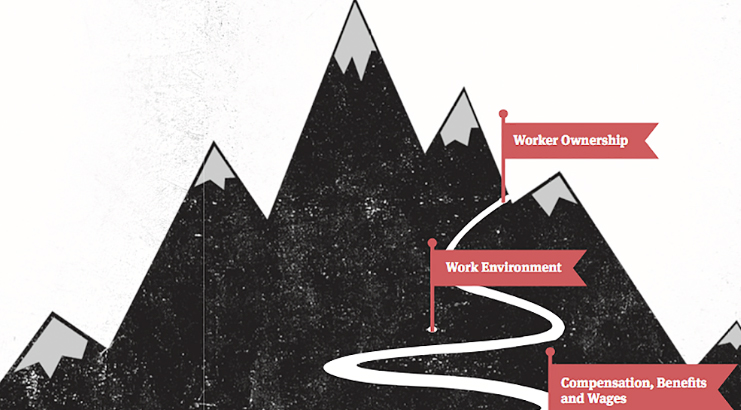By Susan Press
When the Rochdale Pioneers set up shop in 1844, they laid the foundations for today’s global co-operative movement. The Rochdale Principles set a benchmark which still sets co-operatives apart from competitors in the increasingly crowded arena of ethical business.
Other forms of social enterprise have been inspired by the founding principles of the co-op movement and in recent years corporate business is pitching to be a force for public good. One of the ways they are doing this is through B Corps certification.
The community of B Corps certified in the UK launched at the end of September 2015 with 62 founding members. There are now 150 signed up to B Corps certification, which requires high standards of verified social and environmental performance, transparency, and legal accountability. Leading UK B Corps brands grew on average 21% in 2017, compared to a national average of 3% across their respective sectors.
The UK community includes household names like Ella’s Kitchen, Pukka Teas, Divine Chocolate and Lily’s Kitchen. Globally, there is now a community of over 2,400 B Corps claiming purpose beyond profit.
Mark Cuddigan, chief executive of Ella’s Kitchen, said recently: “I am excited that the B Corps movement is growing and that UK consumer brands are leading the way in driving positive change and inspiring other businesses to join us on this global mission to redefine the meaning of success in business. Ultimately, the more like-minded businesses who certify as B Corps, the more we can ensure that businesses can come together to inspire change and be a force for good for people and the planet.”
But, however welcome the boom in a more ethical private sector, it is the co-op movement which still offers something unique in terms of collective working and positive impact on the wider community. And its governance is key to making that happen. A co-operative boardroom is very different from those of investor-owned corporations or businesses run for shareholder profit – however ethical they may be.
Linda Barlow is co-operative governance advisor for Co-operatives UK, which offers advice and support to thousands of co-operatives in the UK currently contributing £36bn to the economy.
She says “Co-ops have to operate within the structures available to any other business. It’s what is in their governing documents and articles that makes them different, embracing the principles of co-op values and enshrining them in governance.
“The biggest difference is that when you become involved in a co-op you are on the same democratic level as anyone else. Regardless of how much you put in yourself you still only have one vote.
“Members’ motivations in getting involved are also different than being a shareholder in a commercial entity. There, the main motivation is because you want to see capital grow and get a return on investment, whereas in a co-op you become involved because it meets your cultural, social or economic needs. Some co-ops share a financial dividend but not all do. The rewards are different, it’s not to make money for yourself. It is more that if your relation to it is as a worker you shape that by being a worker but also an owner.”
Courtesy-Coop News



